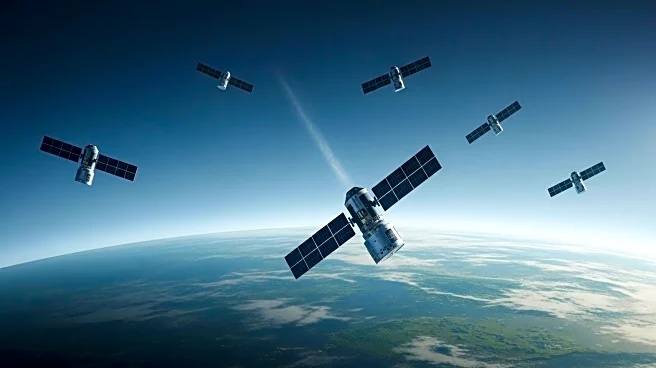What's Happening?
SpaceX is facing backlash over its Starlink satellites, which are reportedly falling to Earth at an increasing rate. Astronomer Jonathan McDowell has noted a trend of these satellites plummeting from low orbit, with one to two satellites falling each day. The satellites are designed to burn up upon reentry, but concerns have been raised about their environmental impact and the potential for a catastrophic chain failure known as Kessler syndrome. This scenario could result in cascading debris fields, disrupting global communications. The issue has prompted calls for regulatory action and environmental assessments.
Why It's Important?
The falling Starlink satellites raise significant environmental and safety concerns. As the number of satellites in orbit continues to grow, the risk of collisions and debris increases, potentially leading to widespread disruptions in communication networks. The environmental impact of satellite launches and reentries, including emissions and toxic metal shedding, is also a concern. These issues highlight the need for stricter regulations and oversight of satellite deployments to ensure sustainable and safe space operations. The situation underscores the challenges of balancing technological innovation with environmental responsibility.
What's Next?
Regulatory bodies, such as the FCC, may need to intervene to address the environmental and safety concerns associated with Starlink satellites. This could involve pausing satellite launches until comprehensive environmental impact assessments are conducted. Legal actions may also arise if falling satellites cause damage to property or human life. The situation calls for increased collaboration between space agencies, industry stakeholders, and environmental groups to develop sustainable practices for satellite deployment and management.
Beyond the Headlines
The controversy surrounding Starlink satellites highlights broader issues of space governance and the need for international cooperation to address space debris and environmental impacts. It raises ethical questions about the responsibility of private companies in managing space resources and the potential consequences of unchecked satellite proliferation. The situation may prompt discussions on the development of global standards and agreements to ensure the long-term sustainability of space activities.









